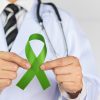Although high-fat diets do not necessarily lead to cancer, all fats are particularly high in calories (9kcal/g) and excessive consumption may lead to overweight or obesity. There is strong evidence that obesity is linked to increased risks for 13 types of cancer. Hence, for weight management and cancer prevention, it is still important to control the amount of fat intake (~20-30% of daily total energy intake).
However, cancer patients who are underweight, undergoing treatments or experienced significant weight loss, may require a high-fat, high-calorie diet. This is when increasing the intake of “healthy fats” become important, as we would like to maintain and support weight gain, without clogging up our arteries!
| Types of Fats | Description | Recommended Intake | Food Sources | ||
| Bad / Unhealthy | Avoid | Trans Fat (TFA) | ↑ “bad” LDL-cholesterol
↓ “good” HDL-cholesterol. TFA is 2-10x worse than SFA as risk factor of heart disease. |
0% or < 1% of total energy intake | Partially hydrogenated oils (PHO), fast food or processed food using PHO Non-dairy creamer Vegetable shortening Hard margarine |
| Minimise | Saturated Fat (SFA) | ↑ “bad” LDL cholesterol levels ↑ risk of heart disease |
< 7% of total energy intake | Animal fats Poultry skin, fatty meats Butter, ghee, lard Palm kernel oil Full cream dairy products Coconut milk & oil |
|
| Good / Healthy | Encourage | Mono-Unsaturated Fat (MUFA) | A diet rich in unsaturated fats instead of saturated fats improves blood cholesterol levels, and decrease the risk of heart disease. Omega-3 ↓ ”bad” LDL-cholesterol levels.
Omega-3 fats help stabilize weight in cancer patients who are experiencing unintentional weight loss, favouring weight and appetite gain. |
7-15% of total energy intake | Avocado & avocado oil Olive & olive oil Nuts & seeds Canola oil Peanut oil Rice bran oil |
| Encourage | Poly-Unsaturated Fat (PUFA) | 6-10% of total energy intake | Mackerel, salmon, herring, trout, tuna (≥2 servings of Omega-3 fatty fish per week is recommended) Walnuts Flaxseeds Soybean Oil Sunflower Oil Corn Oil |
||
*The nutrition needs of cancer patients vary from person to person. It is important to consult your dietitian to work out the best diet for you.






